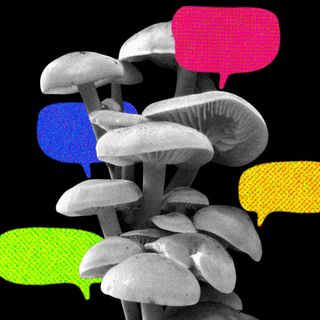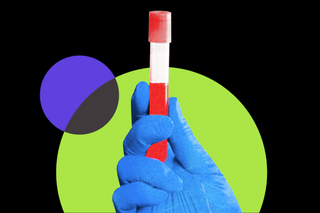
How Routine Blood Tests May Help Indicate Mental Health Disorders
A new research shows how genes behind some mental illnesses — like depression and schizophrenia — could be picked up in blood tests.

A new study attempts to reiterate that mental health isn’t divorced from physical health — and isn’t an abstract concept conjured by “lazy” people to avoid working. This is based on a finding that blood tests — even the routine ones — could reveal genetic markers of mental health conditions in individuals.
Published in Science Advances, a new study involving almost a million people found that a number of mental health disorders — including certain depressive and eating disorders — were linked to biomarkers that can be easily detected in routine bloodwork. Given that clinicians largely rely on subjective self-reports to diagnose most mental health disorders, the finding could revolutionalize mental healthcare in more ways than one.
But what is a biomarker? A biomarker is essentially derived from bodily fluids — like blood, for instance — and is used as a sign of abnormal, or even normal, processes in one’s body. As such, it can not only serve as a diagnostic tool, but also as a test for whether a specific treatment is working for an individual.
“It’s often difficult to study the role of these blood biomarkers in mental health conditions,” William Reay, first author of the study and postdoctoral research fellow at the University of Newcastle in Australia, wrote in The Conversation. But “one solution is to look at genetic influences on both mental illness and substances measured in blood.”
Related on The Swaddle:
Why ‘Smiling Depression’ Is Particularly Difficult to Identify, Treat
And so, the research focused on major depressive disorder, schizophrenia, bipolar disorder, PTSD, anorexia, OCD, ADHD, autism, and Tourette’s syndrome — in terms of their genetic links to 50 different factors gauged through routine blood tests, like cholesterol, vitamins, and white blood cells. It is pertinent to point out, however, that the researchers clubbed neurodivergences like autism and ADHD, among others, in the bracket of “mental health disorders,” as Reay referred to them. While the terminology certainly harms the neurodiversity movement by pathologizing neurodivergent experiences, the research itself may be worth exploring for neurodivergent individuals too, given how big of a failure the present system to diagnose neurodivergence has proven to be.
Coming back to the study, Reay explains further that “The widespread availability of genetic data has allowed us to investigate how… [genetic] variants are related to the risk of mental illness. These same variants can then also be linked to the measured levels of a biomarker in blood. For example, a variant in a particular gene may increase the risk of developing schizophrenia and also be linked to a decrease in the levels of a vitamin circulating in the blood.”
Referring to another example, Reay adds, “…there was a positive genetic correlation in our study between white blood cell count and depression. This could indicate some process in our body influences both depression and white blood cells.”
In early 2021, scientists had developed an objective diagnostic tool — based on blood-based biomarkers — to accurately measure levels of a brain protein associated with depression and bipolar disorder. It offered promise as a novel approach to not just diagnose depressive disorders, but also gauge how well (and if at all) a patient is responding to prescribed antidepressants.
Related on The Swaddle:
More Women Than Men Are Diagnosed With Depression, Anxiety Because of Everyday Inequality: Study
The present finding adds to the growing body of research surrounding the diagnosis and treatment of depression. The researchers found not just a genetic correlation between biochemical traits and psychiatric disorders, but also “strong evidence [of] a causal effect” between the two — suggesting that it may potentially be possible to target the biochemical traits, in question, for treatment.
“We found evidence some substances measured in [the] blood may actually be involved in the cause of some mental illnesses… Further work is now needed to identify how these blood measures are precisely involved in these disorders, and to find out if they can be targeted for treatment,” Reay noted.
As we continue to emerge from the pandemic, the present study may bring hope to millions of people from across the globe, who are still trudging through the mental health epidemic that Covid19 has left in its wake.
While we wait for further research, and subsequently, for the technology to be available to the public, Reay’s words ring true, “People often consider mental health as separate from the health of the rest of the body. This is far from true.”
Devrupa Rakshit is an Associate Editor at The Swaddle. She is a lawyer by education, a poet by accident, a painter by shaukh, and autistic by birth. You can find her on Instagram @devruparakshit.
Related


How Crypto ‘Bro’ Culture Around Finance Is the New Toxic Masculinity
